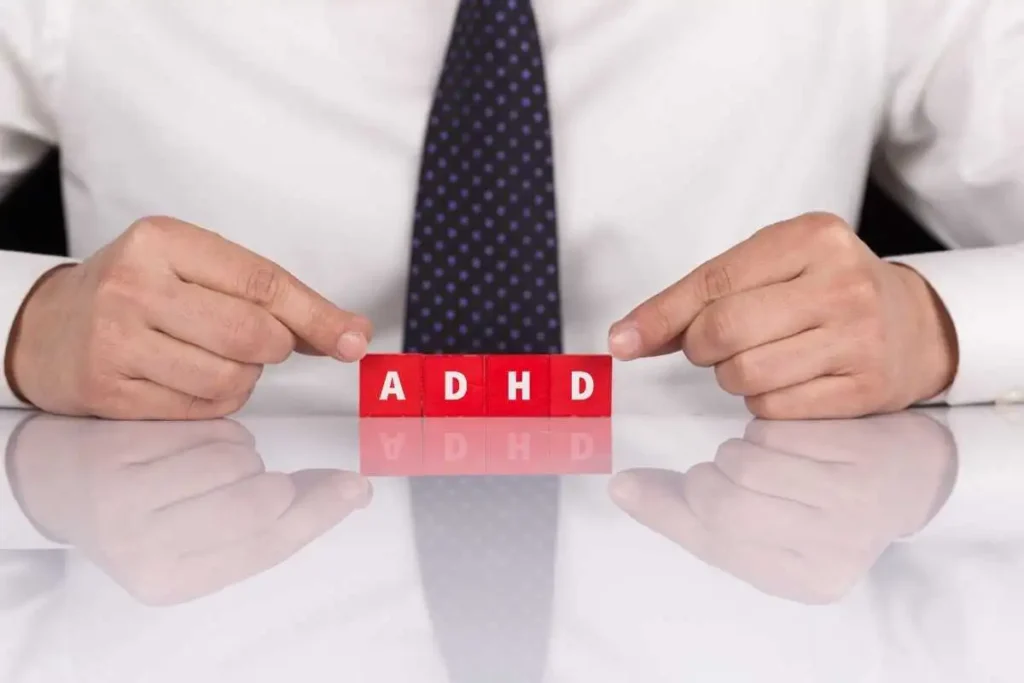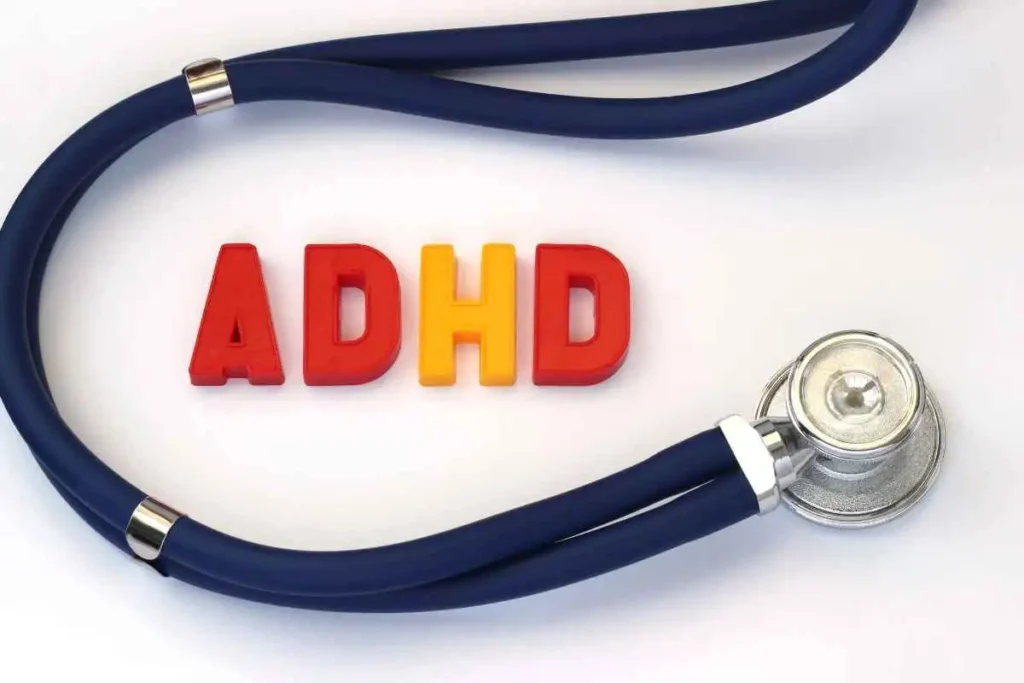Living with ADHD can significantly impact one’s daily routines, making tasks that seem simple to others quite challenging. Attention Deficit Hyperactivity Disorder, or ADHD, is a neurodevelopmental disorder that affects millions of people worldwide, influencing their ability to focus, manage time, and stay organized.
For many individuals with ADHD, maintaining a consistent daily routine can be daunting, with showering frequently emerging as a particularly difficult task.
This article delves into the reasons why showering can become a daily battle for those with ADHD, shedding light on the unique challenges they face and offering insights into how these obstacles can be overcome with understanding and support.
Attention Deficit Hyperactivity Disorder, or ADHD, is a neurodevelopmental disorder that affects both children and adults. It is characterized by patterns of inattention, hyperactivity, and impulsivity that interfere with daily functioning and development.
Common symptoms of ADHD include:
- Difficulty focusing or paying attention
- Impulsivity and acting without thinking
- Excessive movement or restlessness
- Challenges with organizing tasks and activities
- Tendency to daydream or become easily distracted
These symptoms can significantly impact daily life, making routine tasks, like showering, a challenge. Individuals with ADHD may struggle with time management, often losing track of time or finding it difficult to start tasks.
The condition may also affect motivation, resulting in procrastination or avoidance of necessary activities.
Daily Routine Challenges
Difficulty with Time Management
For individuals with ADHD, organizing time can feel like an uphill battle. Showering, a seemingly simple task, often becomes daunting when trying to fit it into a scattered day. The lack of a structured routine often leads to missed showers or hurried ones that add stress to the day.
Struggles with Motivation
Motivating oneself to start a task like showering can be surprisingly challenging. This lack of drive can stem from feeling overwhelmed by the task or simply not finding it stimulating enough to prioritize. As a result, showering is often postponed until absolutely necessary.
Sensory Sensitivities
Sensory sensitivities are another hurdle. The feel of water, the temperature changes, and the noise of the shower can be overwhelming.
These heightened sensory experiences can make the idea of showering unpleasant, leading to avoidance or increased anxiety about the task.
These challenges highlight why daily routines, including showering, are not straightforward for those with ADHD. Understanding these hurdles is crucial in showing empathy and support for those navigating this condition.
Why Showering is Difficult
For individuals with ADHD, showering can be a surprisingly challenging task, often fraught with hurdles that may not be immediately obvious to others.
Here are some of the key difficulties they face:
- Complexity of the Task: What appears to be a straightforward routine involves multiple steps, from gathering toiletries to adjusting water temperature. This multi-step process can become overwhelming, leading to avoidance.
- Overwhelming Sensory Experience: The sensations of water hitting the skin, changes in temperature, and the echo of water in a confined space can be intense. For those with heightened sensory sensitivities, this can make showering an uncomfortable experience.
- Procrastination Tendencies: Individuals with ADHD often procrastinate due to the lack of immediate reward in completing the task. The effort required to start showering may feel disproportionate to the perceived benefits, resulting in delays.
Understanding these challenges can help foster empathy and support for those with ADHD as they navigate the complexities of daily life.
Data and Statistics
Understanding the challenges faced by individuals with ADHD in maintaining daily routines, such as showering, is crucial. Studies reveal that a significant portion of those with ADHD struggle with routine tasks.
Research indicates that approximately 50-60% of adults with ADHD experience difficulties in managing daily responsibilities, including personal hygiene routines.
Sensory issues are prevalent among those with ADHD. A study found that 40% of individuals with ADHD report heightened sensitivity to sensory stimuli, which can make the showering experience particularly challenging.
| Aspect | Percentage |
|---|---|
| Difficulty with Daily Routines | 50-60% |
| Heightened Sensory Sensitivity | 40% |
This data highlights the need for tailored strategies and understanding. It underscores the importance of addressing sensory sensitivities and establishing supportive routines to ease daily challenges for those with ADHD.
Mental Processes at Play
For those living with ADHD, the mental processes involved in everyday tasks like showering can be daunting.
One of the key challenges is executive function deficits. This refers to difficulties in organizing, planning, and executing tasks, which are essential skills for even the simplest daily routines.
“Executive function deficits can make starting and completing tasks feel like climbing a mountain.”
Another hurdle is the challenge with attention span. Individuals with ADHD often struggle to maintain focus on tasks that do not provide immediate stimulation or reward.
This makes it hard to stay engaged in a multi-step activity like showering, which can feel mundane and prolonged.
These mental hurdles contribute significantly to why showering becomes a daily battle. Recognizing and understanding these challenges is crucial for developing effective coping strategies and offering support to those affected.
Sensory Overload
For individuals with ADHD, the shower can be a sensory minefield. The sensation of water hitting the skin is often amplified, making each droplet feel like a prickling needle.
The temperature of the water, whether too hot or too cold, might feel unbearable, creating a discomfort that is hard to ignore.
Beyond the tactile sensations, the noise levels in the shower can be overwhelming. The sound of water rushing from the faucet, echoing off the tiles, can become a cacophony for those sensitive to auditory stimuli. This barrage of sensory input can turn what should be a calming experience into one that is anything but.
These sensory challenges contribute to why showering can become a dreaded task for many with ADHD. Understanding these unique sensory experiences can foster empathy and aid in developing supportive strategies to navigate these daily hurdles.
Emotional Factors
Showering can evoke a range of emotions for those with ADHD, often starting with a pervasive anxiety about starting the task.
This anxiety can stem from the unpredictability of the experience or the perceived complexity of the routine. The mere thought of having to engage in such a multi-step process might feel overwhelming, leading to procrastination and avoidance.
Feelings of inadequacy can accompany these anxious thoughts. Many individuals with ADHD may struggle with self-doubt, questioning why a seemingly simple task is so challenging for them. This internal dialogue can erode self-esteem, making it harder to approach the shower with confidence or ease.
Recognizing that these feelings are not about laziness, but rather part of the ADHD experience, can help in developing compassionate strategies to manage this daily challenge. By addressing these emotional hurdles, it becomes possible to create a more supportive environment for those facing these struggles.
Procrastination and Avoidance
For those with ADHD, procrastination is a common hurdle, especially when it involves tasks like showering. The fear of discomfort often plays a significant role.
The sensation of water on the skin, the change in temperature, or the noise of the shower can be overwhelming, causing individuals to put off the task. This hesitation isn’t about laziness but rather an attempt to avoid an uncomfortable sensory experience.
The lack of immediate reward can contribute to avoidance. Unlike tasks that provide instant gratification, the benefits of showering—such as feeling clean or refreshed—are not always immediately apparent.
For someone with ADHD, who may struggle with delayed gratification, this can make showering feel less urgent or rewarding. For example, they might choose to engage in activities that offer quicker satisfaction, like watching TV or browsing the internet, instead of starting a shower.
Coping Strategies
Finding effective ways to manage showering can make a significant difference for individuals with ADHD.
Implementing practical coping strategies can help reduce the overwhelm and make the task more approachable. Here are some techniques to consider:
- Breaking tasks into smaller steps: Instead of viewing showering as one daunting task, try breaking it down into manageable parts. Focus on turning on the water, stepping in, washing hair, and so on. Tackling one step at a time can make the process feel less overwhelming and more achievable.
- Using timers and reminders: Timers can help keep track of time and prevent the task from feeling endless. Set a timer for each step or the overall shower duration to maintain focus and structure. Additionally, reminders on your phone or through apps can serve as prompts to start the task, reducing the chance of procrastination.
These strategies aim to make showering a less stressful experience, promoting a sense of accomplishment and routine. By incorporating these methods, those with ADHD can find showering more manageable and less of a daily battle.
Personal Stories
For many individuals with ADHD, showering is not just a routine task but a significant hurdle. Take Sarah, for example, who describes her struggle: “I often find myself staring at the shower, feeling overwhelmed before I even turn on the water.” This sentiment resonates with many who face similar challenges.
Yet, there are success stories that offer hope and inspiration. James, another individual with ADHD, shared his breakthrough: “I started using a waterproof timer and set it for ten minutes.
It turned showering into a game, and suddenly, it wasn’t such a daunting task.” By breaking the task into smaller steps, he managed to transform his routine.
These personal stories highlight the unique battles and triumphs faced by those with ADHD in their daily lives.
They remind us that while the struggle is real, finding solutions and sharing experiences can lead to positive change. Through understanding and empathy, we can better support those navigating these daily battles.
Role of Support Systems
Having a strong support system can make a significant difference for individuals with ADHD who struggle with daily tasks like showering. Emotional and practical support can help ease the burden and provide motivation.
Family and Friends
Family and friends play a crucial role in providing encouragement and understanding. They can assist by offering gentle reminders and creating a non-judgmental environment.
This support can help reduce anxiety and feelings of inadequacy related to daily routines. Their presence and patience can make daunting tasks feel more manageable.
Online Communities
Online communities can be a valuable resource for those with ADHD. These platforms offer a space to share experiences and strategies with others facing similar challenges.
Members can find comfort in knowing they are not alone and gain insights from shared stories and solutions. Online support can foster a sense of belonging and provide practical advice tailored to ADHD-related struggles.
Support systems, whether in-person or virtual, offer essential assistance and empathy, helping to navigate the unique challenges associated with ADHD.
Professional Help
For individuals with ADHD, seeking professional guidance can be a transformative step in managing daily challenges like showering.
Therapists and counselors play a pivotal role by providing a safe space to explore underlying emotional factors, such as anxiety or feelings of inadequacy. They offer strategies to address these issues and help individuals develop personalized coping mechanisms.
ADHD coaches, on the other hand, focus on practical aspects of daily routines. They assist in creating structured plans that break down complex tasks into manageable steps.
By setting achievable goals and offering consistent support, these coaches help enhance time management and motivation. Their tailored advice can make daunting tasks feel more achievable.
Professional help not only equips individuals with tools to tackle immediate challenges but also fosters long-term growth and self-awareness.
This support can lead to improved confidence and a more positive relationship with daily routines, including showering.
Technology and Tools
In today’s digital age, technology offers valuable solutions for those with ADHD to manage showering challenges. Apps for reminders like Todoist and Habitica can be instrumental in establishing and maintaining a consistent shower routine.
These apps allow users to set specific times and receive notifications, helping to combat procrastination and forgetfulness.
Meanwhile, sensory-friendly products can make the showering experience more comfortable. Soft, adjustable showerheads can reduce the harshness of water pressure, catering to those sensitive to touch.
Noise-reducing earplugs or waterproof headphones can create a calming environment by minimizing the overwhelming noise of running water.
Incorporating these technological tools into daily routines can significantly ease the process of showering for individuals with ADHD. By addressing both reminder needs and sensory sensitivities, technology provides a tailored approach to overcoming these common hurdles.
Conclusion
Showering can be a complex and overwhelming task for many individuals with ADHD, involving challenges such as executive function deficits, sensory overload, and emotional factors. These difficulties are compounded by issues with time management and motivation, making a simple daily routine feel like a daunting battle.
Understanding these struggles is crucial in fostering empathy and support for those affected. By breaking tasks into smaller steps, utilizing helpful technology, and seeking professional assistance, individuals with ADHD can manage their daily routines more effectively.
Through increased awareness and compassion, we can create a supportive environment that empowers those with ADHD to overcome their challenges, including the seemingly simple act of showering. By doing so, we can help them lead more fulfilling and balanced lives.







